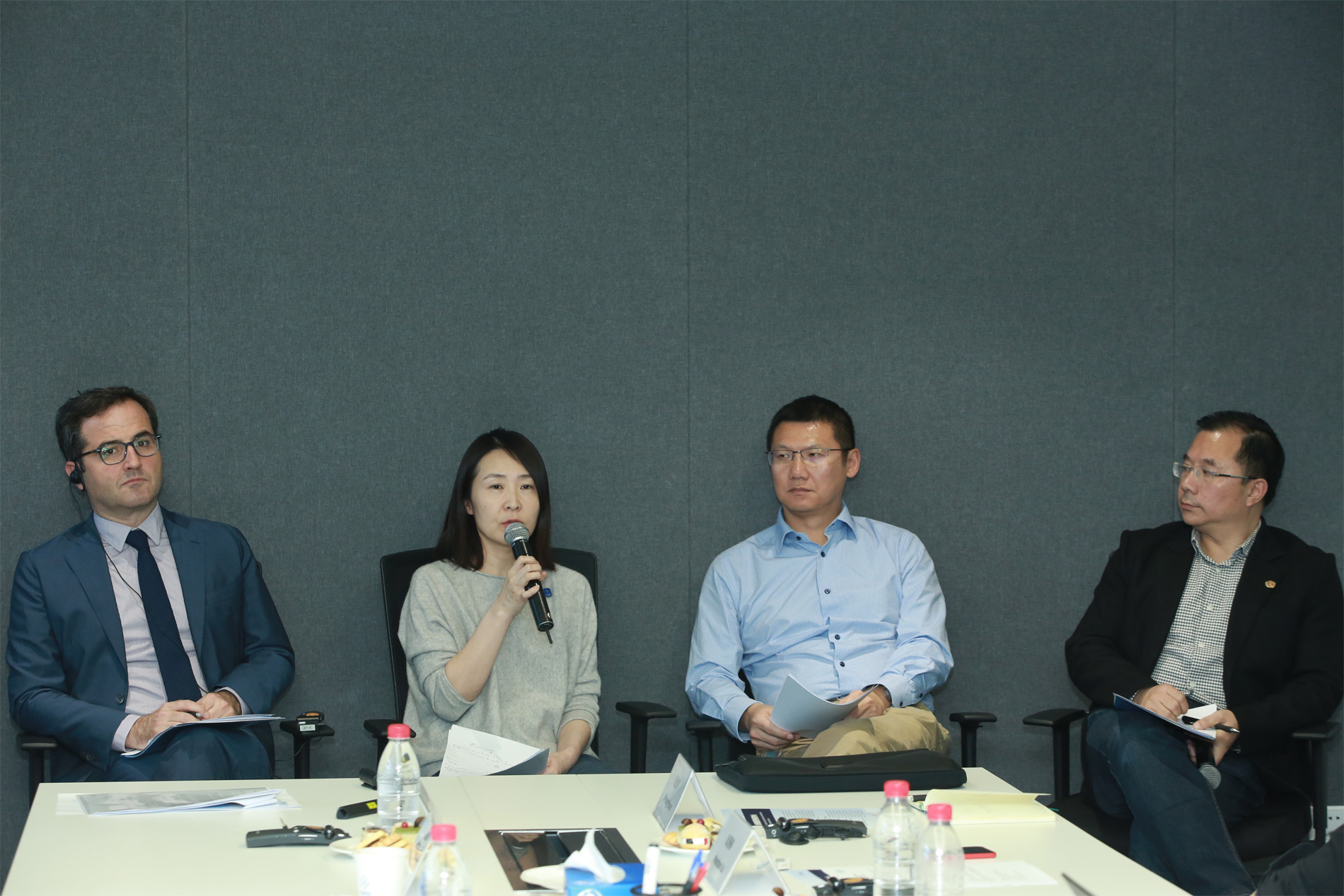Health Experts Call for Faster Actions to End TB by 2030
Beijing, March 21st, 2019 - Leading health experts and drug scientists and practitioners gather here to call for stepped-up measures to accelerate the fight against Tuberculosis (TB), the world’s deadliest infectious killer which heads of states have vowed to end by 2030.
At a media workshop themed “It’s time for action! It’s time to End TB!”, jointly hosted by WHO Representative Office for China and the Global Health Drug Discovery Institute (GHDDI) three days ahead of the annual World TB Day, speakers called for improvement in diagnoses and treatment, and financial protections for patients for accelerated progress to address the global challenge.

▲ Panel Discussion (from left to right): Fabio Scano, Office in Charge at WHO China Office, Manchun Lu, Chief Operating Officer at GHDDI, Shitong Huan, Senior Program Officer for Health Innovation Partnership at BMGF China Office, and Zhongdan Chen, Technical Officer at WHO China Office
TB, a preventable and curable disease, sickens close to 30,000 people per day, claiming 4,500 people lives. Global efforts have saved an estimated 54 million lives, more than the population of Myanmar, since 2000 and reduced the TB mortality rate by 42 percent.
Dr. Manchun LU, Chief Operating Officer of GHDDI, said the non-profit institute is committed to drive innovation in global health research and development, accelerating the translation of basic biomedical research into medicines. This includes a major push into innovative research for TB, with strong support by the Bill & Melinda Gates Foundation, TB Alliance, Tsinghua University and Beijing Municipal Government.
“Partnering with top research institutes in China and abroad, GHDDI is developing new anti-TB drugs to address the rising issue of resistance to improve drug efficiency, and to greatly shorten treatment period, while reducing side effects,” Dr. Lu said, noting TB is a crucial research area of GHDDI.
“Without innovative TB treatment regimen and new vaccines, the global goal of ending TB in 2030 cannot be achieved. The Bill & Melinda Gates foundation will continue partnering with China to support the development of new drugs and vaccines for TB,” Shitong Huan, Senior Program Officer for Health Innovation Partnership at the Bill and Melinda Gates Foundation China Office, said in the media workshop.
Acknowledging progress China has made against the Global Health disease, Dr Chen Zhongdan, Technical Officer for HIV, TB and STIs, WHO China Office, noted: “to achieve globally agreed targets in the next decade we need to accelerate the rate of decline of TB incidence globally. Critical to this will be improved diagnoses rates and treatment outcomes – R&D can provide new tools in the fight against TB.”
Dr Chen added, “Equally important will be financial protections for TB patients, so that R&D discoveries can have maximum impact on improving treatment outcomes and to alleviate poverty.”
Heads of states came together and made strong commitments at a first-ever United Nations High Level Meeting in September 2018, in an effort to accelerate the TB response in countries to reach the target of getting the disease eliminated by 2030.
Each year, WHO commemorates World Tuberculosis (TB) Day on March 24 to raise public awareness about the devastating health, social and economic consequences of TB, and to step up efforts to end the global TB epidemic.
Under the theme of ‘IT’S TIME!’, this year’s event has put the accent on the urgency to act on the commitments made by global leaders to scale up access to prevention & treatment, promote equitable, rights-based & people-centered TB response, ensure sufficient & sustainable financing including for research, promote an end to stigma & discrimination, and build accountability.
About GHDDI
The Global Health Drug Discovery Institute (GHDDI) in Beijing was jointly founded by Tsinghua University, the Bill & Melinda Gates Foundation, and the Beijing Municipal Government.
The Institute is a non-profit, transformative drug discovery and translational platform with advanced biomedical research and development capabilities. Being the first research institute of its kind in China, GHDDI is committed to drive innovation in global health research and development, accelerating the translation of basic biomedical research into medicines.
It is an independent, not-for-profit institute with a broad interest in addressing global health concerns, regardless of financial incentives, and intends to focus its efforts on tackling the world’s most pressing disease challenges faced by many developing countries. Scientists at GHDDI work across a wide range of diseases that disproportionately affect populations in the developing world, including but not limited to tuberculosis, malaria, helminth infections, diarrheal disease etc.


